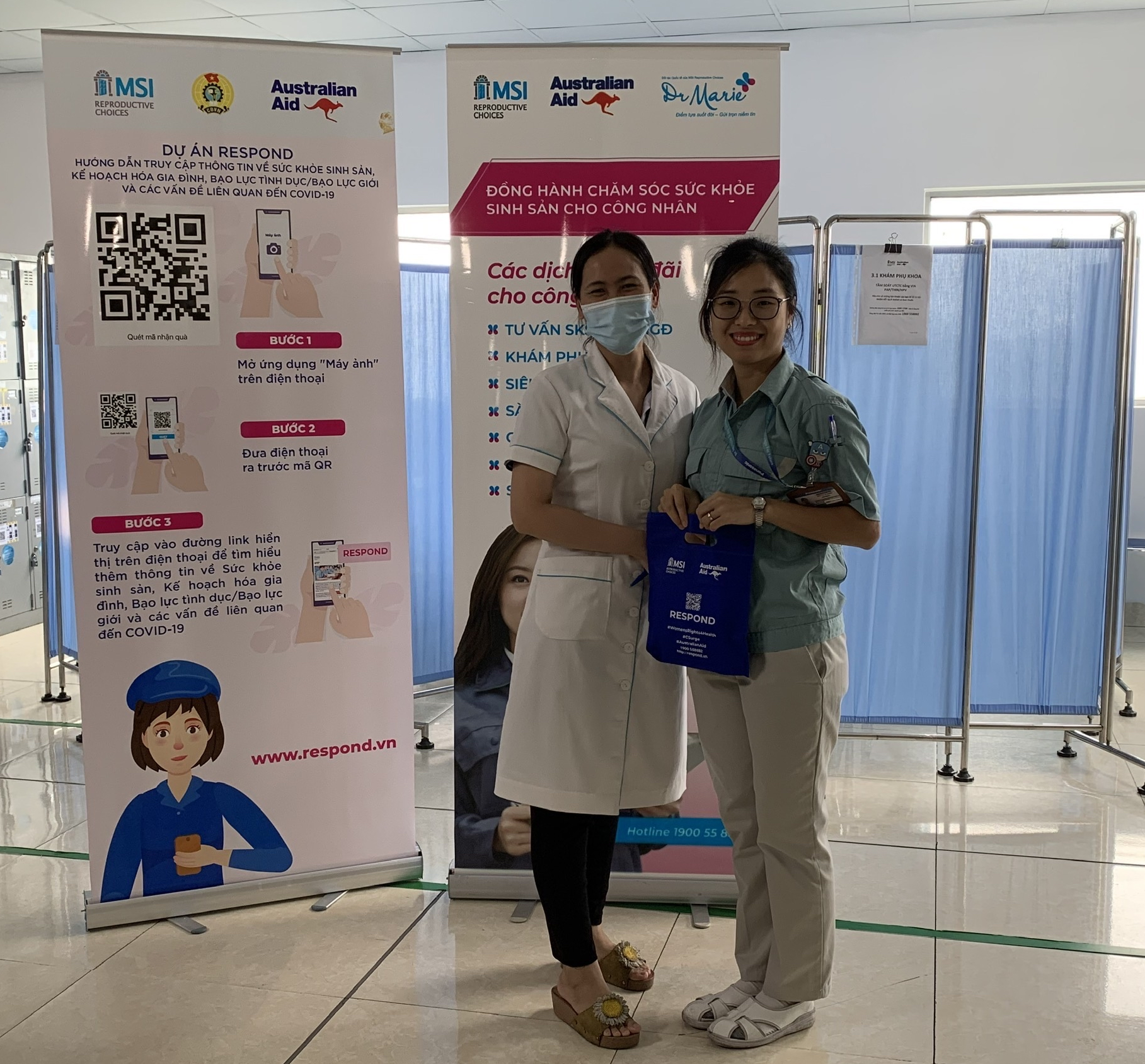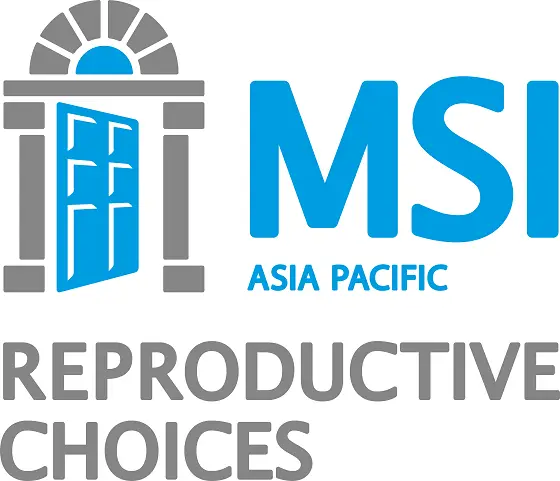
Hien is a 30-year-old factory worker in Vietnam, who has suffered from cervical ectropion for many years. Cervical ectropion happens when cells that line the inside of your cervix grow on the outside. These cells are more sensitive than the cells typically on the outside and can cause bleeding.
With limited access to healthcare, Hien had only received treatment for her condition once, in 2015. With the support of the Australian Government’s RESPOND program, MSI’s mobile clinic visited Hien at her workplace. She was able to have an examination to confirm her condition and was informed about her options for long-term contraception. Hien is interested in getting an implant, and while she didn’t have time for the procedure that day, she returned to work with a subsidised voucher and information about an MSI clinic nearby where she can get an implant at a time that suits her.
Hien is one of over 15,000 female factory workers who has received sexual and reproductive healthcare from MSI under the RESPOND program. This mobile service has made over 30 visits to many different factories and brands with a high proportion of female employees.
A recent mobile service visited Panasonic Appliances Vietnam and gave an information session about sexual and reproductive health to 1700 female workers. Over 350 factory workers had gynaecological exams, sexual and reproductive health counselling, and early cervical cancer screenings as part of the visit.
Some factories are feeling the pinch of decreasing orders due to the pandemic, leading to staff layoffs and reduced wages. The support of the Australian Government through the RESPOND program has been crucial in ensuring that workers have access to the essential sexual and reproductive healthcare they need.
The RESPOND program aims to enhance the sexual and reproductive health and rights (SRHR) of populations in the Indo Pacific whose access to services or rights have been affected by the COVID-19 pandemic including access to family planning services. The RESPOND program supports continued delivery of high-quality sexual and reproductive health services and commodities through traditional channels (clinics and outreach visits), the scale-up of new delivery approaches trialled during the pandemic (such as digital and virtual technologies) and strengthening organisational capacity and data systems to enable responses to future crises. RESPOND also addresses the ‘shadow pandemic’: a sharp increase in sexual and gender-based violence.




